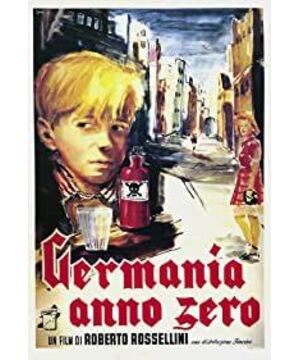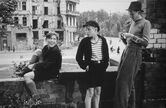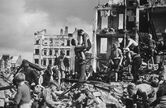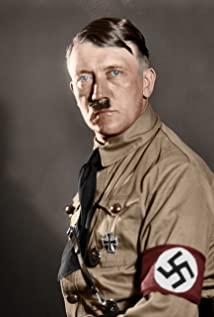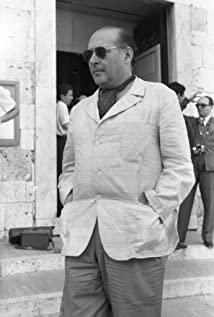plot in the film:
After finishing treatment from the “well-clothed” hospital, he returned to the home of “cry hunger and cold” to recuperate his father. Fear of punishing the "dying words" made by the elder son who didn't dare to go out to work (Of course he didn't know that the younger son was going to poison himself, although he had thought of using suicide to reduce the burden of this post-war impoverished family. ):
"It would be great if the mother was alive, but she was taken away from me, the property was taken away by inflation, and the children were taken away by Hitler;
I don't even have the strength to resist, everyone is like this. I know. When the disaster strikes, it’s impossible to resist, and it’s today’s result. It
’s our responsibility and yours
....
Don’t fight anymore, stop escaping from life, and return to society to live like ordinary people. It’s not a shame to bear fate. Things..." The
film reflects what many war movies will respond to: the cruelty of war/the sorrow of the people after the war/humanity/people's thoughts and beliefs, etc.
In many cases, do we spend some time to think about why this is the case? Why did it become like this?
The sense of scarcity is rampant, and the powerful leader who controls the possessive violently yells in his heart (not just in his heart): more~! more~! more~!
The selfish, ruthless and greedy landlord shouted in his heart: more~! more~! more~!
Using children to make money to instill the thought of power more~! What the hell~!
Innocent and kind-hearted by nature, the pressure of life is quite heavy, seeking to feed his family, looking for food, listening to slander, going astray, suspecting of cumbersome and poisoning his father, and finally falling into the abyss of inner moral condemnation and guilt, shouting in the heart of the little male protagonist: more~! more~! Oh my world~! God damn it~!
Okay, dear ones, thinking about something in their heads, so...then...just do it...
Who made the countless series of cups? Whose responsibility is it? What caused it? What is the responsibility?
The following is a text from the beginning of the film:
Italian:
Quando le ideologie si discostano dalle leggi eterne della morale e della pietà cristiana, che sono alla lase della vita degli uomini, finiscono per diventare criminale follia.
Persino la prudenza dell'infanzia ne viene contaminata dell'infanzia e trascinata da un orrendo delitto ad un altro non meno grave, nel quale, con la ingenuità propria dell'innocenza, crede di trovare una liberazione dalla colpa.
English:
When ideologies distance themselves from Christian morality and piety, the very foundation of human life they become criminal folly.
Even childhood innocence is tainted and drawn from a horrible crime to a lesser one in which, through its own ingenuity, it believes to find freedom from guilt.
英文:
Morality and the loving spirit of Christianity should always be the foundation of human life.
Even children with innocent hearts and deviations in their ideological systems lead to crimes and mental problems, and they are all untainted.
View more about Germany Year Zero reviews


